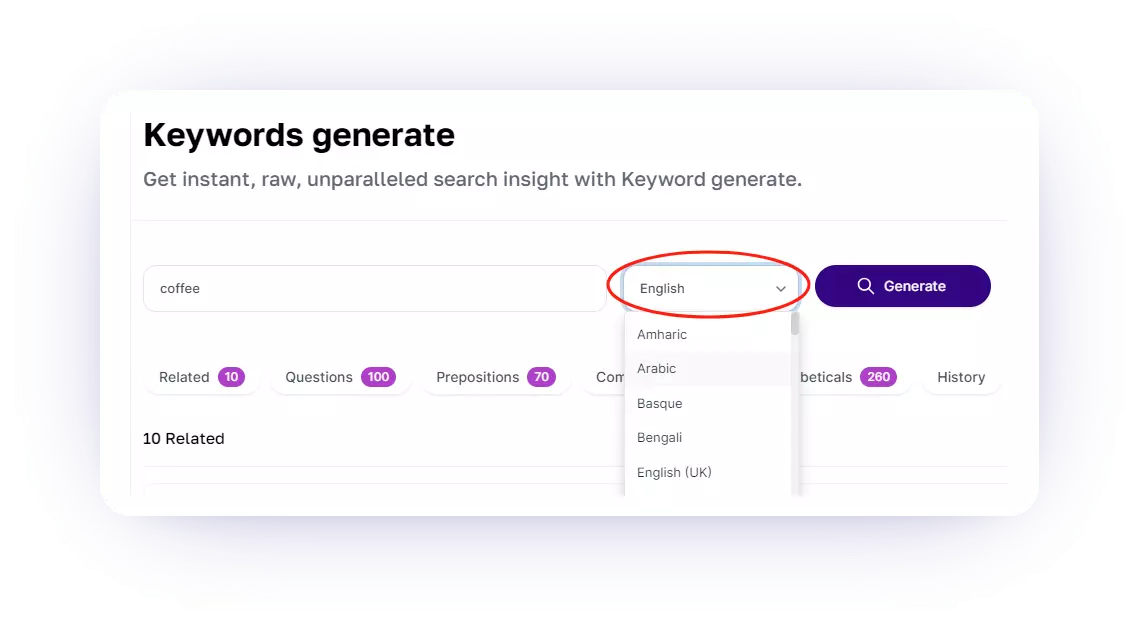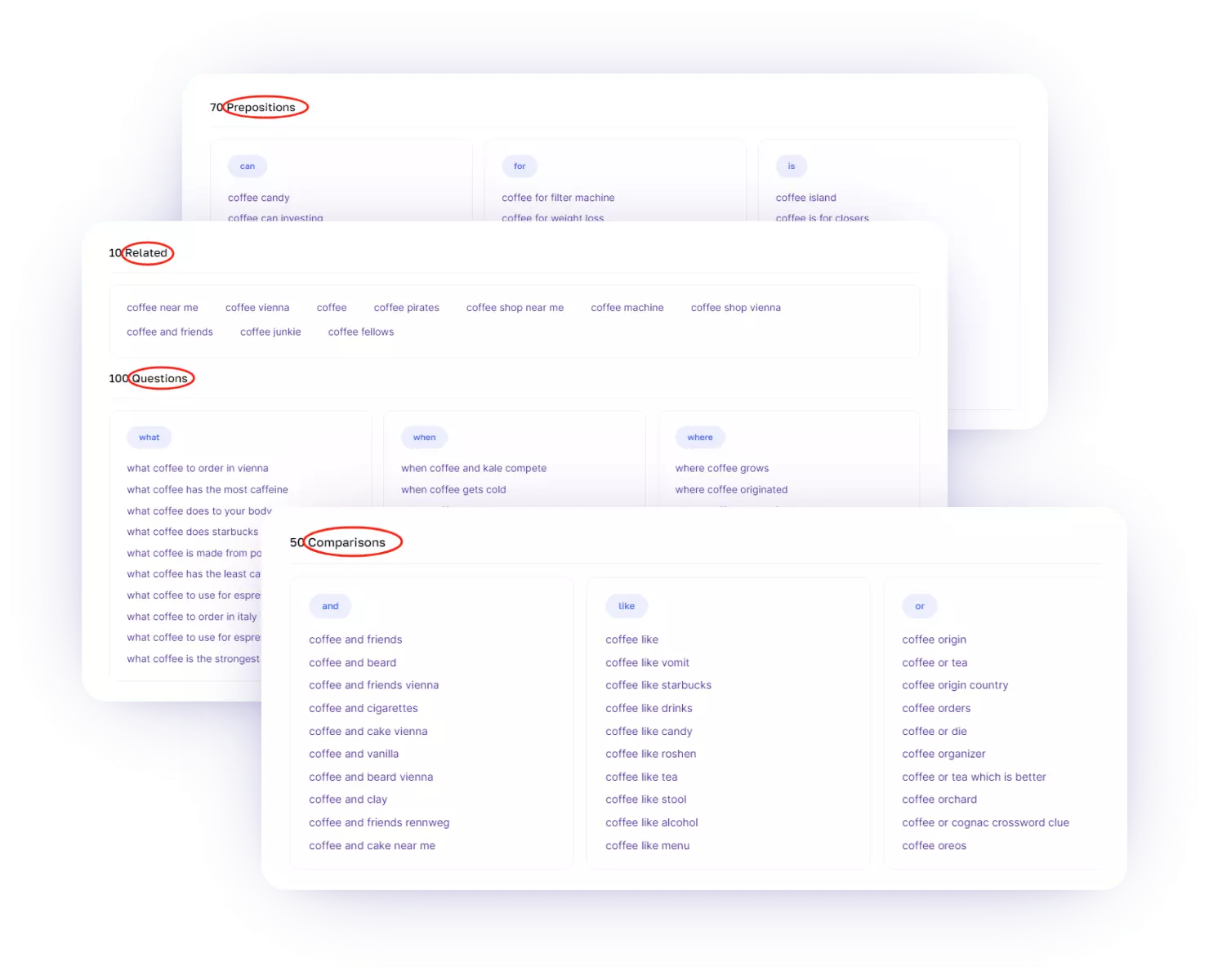
Search Engine Optimization (SEO) is a dynamic and ever-evolving field, and one of its fundamental aspects is keyword optimization. However, the question of how many keywords should I use for SEO remains a topic of debate.
Normally, one primary keyword per page will be good for SEO.
In this post, we'll explore the optimal keyword strategy to strike the right balance between visibility and user experience.
How Many Keywords Should I Use for SEO?
So how many keywords for SEO? One primary keyword per page on your website is good for SEO. It's advisable to complement this with a few supporting keywords.
Consider your homepage, which may center around a specific keyword while seamlessly integrating secondary keywords. Similarly, each blog article can concentrate on distinct keywords.
Diversifying the targeted keywords across various pages broadens your reach, enabling you to connect with a more extensive audience.
While adhering to the practice of focusing on one primary keyword per page, there's room for flexibility. You can infuse variations of that primary phrase into your content.
For instance, if your blog post revolves around the primary keyword "best places to travel," you can skillfully incorporate supporting keywords such as "budget-friendly travel" or "best travel destinations on a budget." This strategic integration enhances your potential to rank for multiple keywords that share similar search intents.
You Might Also Like: What is Keyword Mapping?
Why One Primary Keyword is Enough?
There are at least three compelling reasons.
Any Page Needs One Clearly Defined Topic
Although this might seem straightforward, the concept becomes intricately complex when viewed through the lens of user experience.
Considering that online users seek specific information, it is counterproductive to make them navigate through pages that cover multiple or, even worse, all-encompassing topics. A page focusing on numerous subjects loses its utility.
In alignment with Google's purpose of aiding users in finding precise information, it is inclined to display pages with a specific focus—those deemed most relevant—rather than pages attempting to rank for an assortment of topics simultaneously.
Google Is Good at Catching Close Variations And Misspellings
When a user misspells a word in a Google search, the search engine corrects the mistake, akin to a meticulous grammar teacher. The same principle applies to close variations and synonyms.
Google can rank a page for keywords with synonymous meanings and intents without the need for intentional targeting of each variation. It comprehends that individuals may search for the same information using different expressions.
You Can Rank For Hundreds of Keywords If You Optimize For One
According to our research, a page securing the top position in search results for a particular keyword will also secure a place in the top 10 for nearly 1,000 other relevant keywords. Remarkably, this phenomenon extends beyond high-volume keywords to encompass less popular ones as well.
The pattern persists, indicating that a strategic focus on a single keyword can yield visibility across a diverse array of search terms, significantly amplifying the reach and impact of your content.
Tips for Selecting the Right Keywords
Here are some tips to help you find the right keywords.
Focus on High Search Volume and Low Competition
Before determining the optimal number of keywords per page, it's essential to identify the keywords suitable for each page. The key lies in selecting keywords characterized by low competition and a substantial search volume.
The definition of a high search volume is context-dependent and industry-specific. It could range anywhere from 50 searches per month to 20,000. Precise figures are less critical; instead, view them as relative benchmarks.
Use these metrics to compare different keywords and select one or more to prioritize. However, bear in mind that keywords with high search volumes often come with intense competition. Aim for a balanced approach, targeting long-tail keywords that rank well without being excessively competitive.
Niche Finder's Keywords Generate can help you find the most effective keyword ideas for optimization. You can also dedicate specific languages for your search results, making it easy to do local SEO.


Keywords are Assigned to Pages – Not Sites
It's crucial to ascertain the appropriate number of keywords per page rather than per site. In essence, there is no fixed minimum or maximum number of keywords that universally suits an entire website.
The emphasis should be on creating distinct pages with relevant topics, each containing an optimal number of keywords.
What Is The Best Keyword Density?
The ideal keyword density falls within the range of approximately 1-2%. This implies that a keyword should be incorporated up to two times per 100 words in your content.
Generally, as your content length increases, the keyword density tends to decrease. If you aim to enhance your rankings by ensuring your keywords appear frequently, it's advisable to use them judiciously.
It's important to note that many search engines do not have a definitive rule for keyword density. Since each page and keyword is unique, establishing distinct standards for each keyword is necessary.
Analyzing keyword density alone makes it challenging to determine a precise SEO metric. The most effective approach is to write content naturally and incorporate keywords where they fit naturally.
Read More: What is Keyword Stuffing?
Conclusion: How Many Keywords Should I Use for SEO
In the world of SEO, finding the right balance between keyword optimization and user experience is key to achieving sustainable success.
While there is no magic number of keywords that guarantees top rankings, a strategic and thoughtful approach to keyword usage, combined with high-quality content, will undoubtedly contribute to improved visibility and organic traffic.
Keep pace with industry trends, monitor your website's performance, and adapt your strategy accordingly to stay ahead in the ever-evolving world of SEO.
Also Read: How Many Backlinks Do I Need?

